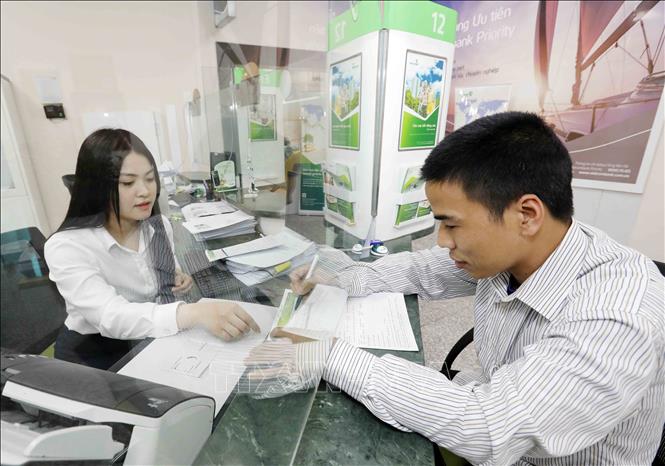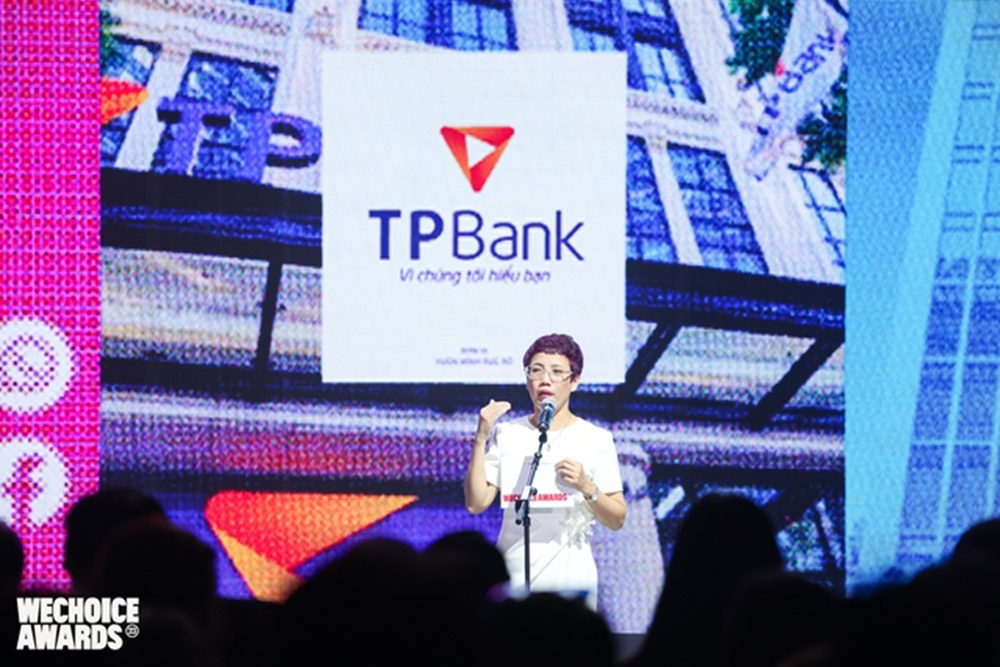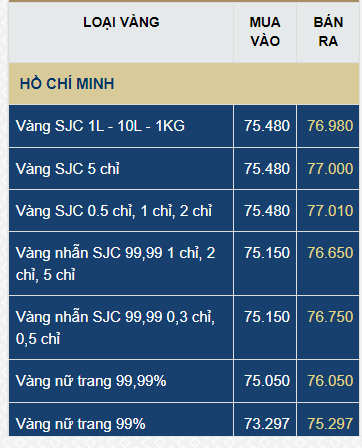
Customers transacting at Vietcombank Hanoi. Illustrative image. (Photo: Tran Viet/VNA)
Seizing the Moment
Mr. Nguyen Duc, a resident of Hai Ba Trung District in Hanoi, shared that he and his wife have recently decided to take out a bank loan of VND1.2 billion to purchase an apartment. “After consulting with many friends who are currently repaying bank loans, I learned that they are bearing interest rates as high as 12-14% per annum for their existing loans. Therefore, the promotional interest rate of 6% per annum offered to my family is quite comfortable,” said Mr. Duc.
According to Mr. Duc’s calculations, about two years ago, the interest rate for home loans was around 10% per annum. If they had taken out a loan of VND1.2 billion at that time, they would have had to pay the bank VND10 million in interest alone each month. However, with the promotional interest rate of 6% per annum, the monthly interest payment would only be around VND6 million, significantly reducing their financial burden.
A survey conducted by Vietnam News Agency reporters revealed that interest rates for home purchase, home improvement, and other loans at banks are currently quite low, with interest rates of 5-6% per annum offered by many banks.
For instance, the Saigon-Hanoi Commercial Joint Stock Bank (SHB) is offering promotional interest rates starting from 5.79% per annum for home loan customers, with a repayment period of up to 25 years and a maximum loan amount of 90% of the value of the intended purchase.
Similarly, the Saigon-Thương Tín Commercial Joint Stock Bank (Sacombank) has also allocated VND10 trillion for preferential lending to customers with a demand for purchasing, constructing, or repairing real estate; buying cars; and other purposes, with interest rates starting from 6.5% per annum.
At Bản Việt Commercial Joint Stock Bank (BVBank), home loan interest rates are offered with flexible options, starting from 4.99% per annum for the first six months, 5.99% per annum for nine months, 6.49% per annum for 12 months, 7.49% per annum for 18 months, and 7.9% per annum for 24 months…
Attractive interest rates are also available at large banks. Specifically, the Vietnam Joint Stock Commercial Bank for Industry and Trade (BIDV) has launched a housing credit package with interest rates starting from 5% per annum, with a repayment period of up to 30 years and a maximum limit of 100% of the capital need.
Vietcombank has also allocated VND50 trillion for individual customers to borrow for purchasing houses, constructing or repairing houses, buying cars, and consuming… with preferential interest rates of only 4.9% per annum for the first six months for loans under 24 months and from 5% per annum for the first 12 months for loans over 24 months…
Foreign-owned banks are also offering competitive interest rates. For example, Shinhan Vietnam Bank is offering interest rates ranging from 5.2% to 6% per annum, fixed for one to three years.
Similarly, HSBC Vietnam is lending to customers at an interest rate of 5.5% per annum for up to 25 years, with a maximum lending value of up to 70%.
Boosting Credit Growth
At Vietcombank, General Director Nguyen Thanh Tung shared that retail credit balances, a significant portion of which comprises home loans, account for nearly 20% of the bank’s total outstanding loans. However, the decline in home lending in the first months of the year has caused a drop in retail credit growth.
Mr. Tung attributed this to the challenges faced by the real estate market regarding legal issues, limited supply, and reduced income affecting customers’ psychology and making them hesitant to purchase properties at this time.
In addition, a leader from another bank noted that credit limits for customers are now stricter, with loans granted for only about 50% of the value of the collateral, compared to 70% previously. This has created considerable pressure on the self-financing capacity of home buyers.
Nevertheless, many experts remain optimistic about the prospect of credit growth in the coming months.
According to Dr. Can Van Luc, an economist, real estate credit currently accounts for one-fifth of the total outstanding credit in the economy. The early implementation of new laws, such as the Law on Land, the Law on Housing, the Law on Real Estate Business, and the Law on Credit Institutions, five months ahead of schedule, will contribute to the recovery of the real estate market.
“As a result, real estate credit, in particular, and the operations of banks, in general, are expected to improve in the second half of the year, especially with the interest rate environment remaining low,” predicted Dr. Luc.
Sharing this view, Dr. Le Xuan Nghia, an economist, stated that real estate remains an essential channel for capital allocation by banks, especially in the affordable housing segment.
However, Dr. Nghia pointed out that social housing is still facing regulatory barriers regarding eligibility, procedures, and other aspects. Therefore, there is a need to redesign policies to promote affordable housing alongside social housing to increase supply that aligns with the financial situation of the people.
While the low lending rates are attractive to those in need of capital to buy or renovate houses, Dr. Nguyen Tri Hieu, an economist, advised borrowers to carefully consider their financial capabilities before making a decision. He explained that low-interest rates are usually promotional and applicable for a short period, after which they may increase significantly.
“Therefore, borrowers should carefully examine the interest rate calculation after the promotional period and understand the margin of change. To avoid the pressure of heavy bank debt, it is advisable to ensure that the amount repaid to the bank, including principal and interest, does not exceed 50% of the monthly income,” advised Dr. Hieu.
Experts predict that the low lending rate environment may persist until the end of 2024. However, there is a possibility of an increase in 2025 if the economy recovers and credit grows. Banks will adjust savings deposit interest rates upwards, leading to higher home loan interest rates next year compared to the current rates.
Therefore, experts recommend that customers prioritize loan packages with fixed interest rates for an extended period to stabilize their financial plans and mitigate risks associated with market interest rate fluctuations.
Which bank offers the highest interest rate for online savings in early February 2024?
Beginning February 1st, 2024, several banks have been adjusting their interest rates downwards for savings accounts ranging from 1 to 24 months. Based on a survey conducted across 16 banks, the highest annual interest rate for online savings deposits at a 6-month term is 5%, while for a 12-month term, it is 5.35%.
4 Factors Putting Pressure on USD/VND Exchange Rate in Q1/2024
With the currency exchange rate fluctuating in the first few weeks of 2024, Mr. Ngo Dang Khoa, Director of Foreign Exchange, Capital Markets and Securities Services at HSBC Vietnam, highlights four factors putting pressure on the USD/VND exchange rate in Q1/2024…
Banks Sacrificing Profits to Support the Economy
In 2023, the question “which bank has the lowest interest rates?” is being talked about more than ever. With the prevailing difficult economic situation affecting individuals and businesses, in line with the directive of the State Bank of Vietnam (SBV), banks have unanimously sacrificed their profits by reducing lending rates and introducing credit packages with interest rates as low as 0%.








































